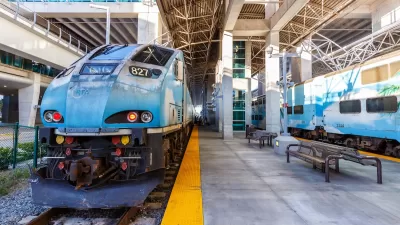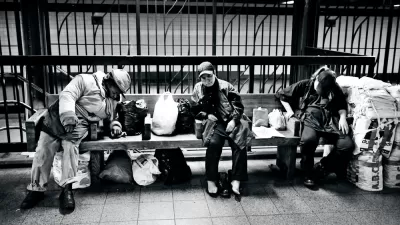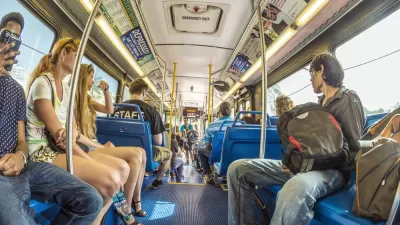Andres Viglucci explores how a strategy being considered in Miami-Dade County seeks to transform distressed commercial properties into green spaces, sparking economic redevelopment throughout the county.
During their recent Great Park Summit, Miami-Dade County's parks department unveiled a new strategy that could provide a significant jumpstart to achieving their 50-year master plan and its central goal of providing open space within walking distance of every resident. Still in its conceptual stages, the promising proposal would turn distressed car lots and failed strip malls into neighborhood parks, explains Viglucci.
"The approach, dubbed Red Fields to Green Fields, is based on a strategy developed by Michael Messner, a Wall Street hedge-fund manager who says it can help reverse the flow of red ink in commercial real estate while removing blight and jump-starting the economic redevelopment of neighborhoods hit hardest by the recession."
With $40,000 raised in grants alone, Miami-Dade hopes to start a pilot project within the year, reports Viglucci. Cities like Atlanta, Denver and Houston have already followed suit, and are testing the strategy in their cities.
According to Jack Kardys, the county parks director, "A model that agency planners developed shows that a 10-acre tract converted into a park and ancillary development mixing housing with commercial uses could generate $500,000 in property taxes a year - enough to cover $200,000 in annual park maintenance and operations, with the balance going into local government coffers." Kardys adds that parks attract development and heighten property values in their surrounding areas.
FULL STORY: On the ‘Great Park Summit’ agenda: Turning Miami-Dade’s failed strip malls, car lots into parks

Alabama: Trump Terminates Settlements for Black Communities Harmed By Raw Sewage
Trump deemed the landmark civil rights agreement “illegal DEI and environmental justice policy.”

Planetizen Federal Action Tracker
A weekly monitor of how Trump’s orders and actions are impacting planners and planning in America.

The 120 Year Old Tiny Home Villages That Sheltered San Francisco’s Earthquake Refugees
More than a century ago, San Francisco mobilized to house thousands of residents displaced by the 1906 earthquake. Could their strategy offer a model for the present?

Ken Jennings Launches Transit Web Series
The Jeopardy champ wants you to ride public transit.

BLM To Rescind Public Lands Rule
The change will downgrade conservation, once again putting federal land at risk for mining and other extractive uses.

Indy Neighborhood Group Builds Temporary Multi-Use Path
Community members, aided in part by funding from the city, repurposed a vehicle lane to create a protected bike and pedestrian path for the summer season.
Urban Design for Planners 1: Software Tools
This six-course series explores essential urban design concepts using open source software and equips planners with the tools they need to participate fully in the urban design process.
Planning for Universal Design
Learn the tools for implementing Universal Design in planning regulations.
Clanton & Associates, Inc.
Jessamine County Fiscal Court
Institute for Housing and Urban Development Studies (IHS)
City of Grandview
Harvard GSD Executive Education
Toledo-Lucas County Plan Commissions
Salt Lake City
NYU Wagner Graduate School of Public Service





























